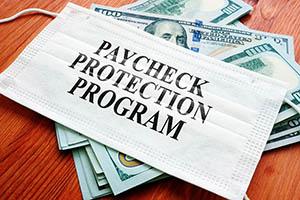Paycheck Protection Program Investigations

If you are a small business that was lucky enough to find a bank willing to accept and fund your small business Paycheck Protection Program (PPP) application, then a small portion of the $670 billion program went to an intended beneficiary. Unfortunately, many small businesses quickly learned larger banks were unwillingly to process their applications. News reports revealed banks received $10 billion in fees for the first traunch of funds dispersed, for which they received a set processing fee of 1-5% based on the size of the loan. A lawsuit filed in the U.S. District Court for the Central District of California against several major banks alleges they moved larger borrowers to the front of the line, ahead of many deserving smaller businesses in order to maximize on origination fees. Some corporations received tens of millions of dollars from the federal small business lending program, which initially ran out of money on April 16. Although the program has been funded once more, applicants are under much greater scrutiny.
The Department of Justice recently announced that it has launched a probe into potential fraud committed by large, publicly-traded companies that applied for and received funds meant for small businesses. In response to widespread outrage, the Small Business Administration (SBA) updated its PPP guidelines, stating: “It is unlikely that a public company with substantial market value and access to capital markets will be able to make the required certification in good faith.”
In order to receive a PPP loan, businesses must certify that they are in need of funding that they cannot get from another source. Per the SBA, public companies have both cash value in the form of shares and access to capital markets (where they can buy and sell debt, among other things), which is why they deem it “unlikely” that public companies will be able to make the aforementioned certification in good faith. An analysis by Forbes revealed 71 publicly-traded companies received PPP loans before the initial $350 billion in funding ran out.
The SBA has stated that any company that gives the money back before May 7 will be determined to have acted in good faith. A number of well-known companies have publicly announced that they will return the funds, including Shake Shack, Ruth Chris Steakhouse, and the Los Angeles Lakers. Many others, however, have so far refused to return the funds, claiming that it would be a breach of fiduciary duty to do so. Those companies argue they met the SBA’s criteria and need the funds to avoid financial ruin.
Because the applications require applicants to agree to use the funds for specified activities and under penalty of perjury, the DOJ may investigate and prosecute any individual or company that violates those terms and conditions. Historically, such investigations and prosecutions disparately impact smaller companies owned by an individual or a small group. These smaller companies are also much more likely to be subject to criminal charges, while larger companies often face fines and penalties.
Our attorneys and staff are actively and aggressively defending our existing clients’ cases. We are also available to meet with new clients. Being mindful of the importance of self-distancing, we at times work remotely but are available to meet new clients either in person or through video conferencing, and have the capability to offer initial consultations by phone. Challenging times demand innovation and accommodation to our clients’ needs. Stahl Gasiorowski Criminal Defense is here for all of your criminal legal needs during this time. To contact the firm, call 908.301.9001 for the NJ office and 212.755.3300 for the NYC office, or email Mr. Stahl at rgs@sgdefenselaw.com.















